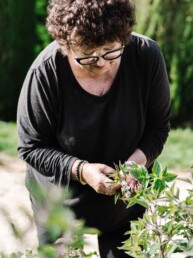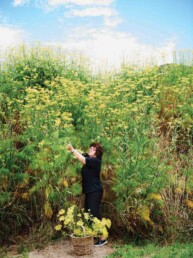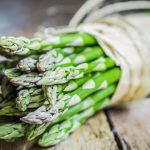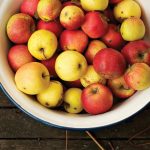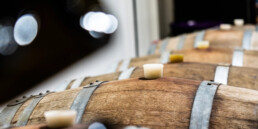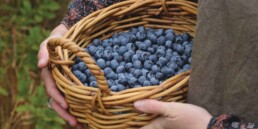The Daylesford Macedon Ranges region is a foragers delight.
In the first of a series of articles, Daylesford’s dining trailblazer, Alla Wolf-Tasker, talks us through some of the seasonal delights that can be found in our region, along with the health benefits they bring with them. We could all do with a little immunity boost right now, so keep your eyes peeled as you explore the farms, forests, meadows and gardens of our region.
The legacy of this year’s long winter of lockdowns and restrictions will not be easy to fix. We are so blessed here in Daylesford that despite periods of isolation, the fresh air and great outdoors of our forests, meadows and even gardens have continued to nourish and supply us. With a little knowledge of what is easily accessible and growing around us, we are able to supplement our diet with nutrient rich immunity boosting foods, herbs and teas
Spring moving into summer is our most optimistic of seasons. Things pop up everywhere. “Too much”, many gardeners and farmers will say as they race to keep up with mowing and weeding. But knowing a little more about some of these bountiful ‘weeds’ might change that perspective.
Slipping into paddocks for a few stinging nettles (I wear well-fitting gardening gloves) is a favourite activity of mine. You can’t miss the nettles. The serrated leaves are covered with fine stinging hairs (which disappear on cooking). They are extraordinarily good for you, containing large amounts of iron and protein, far in excess of what you would find in soya beans. I’ve dehydrated the leaves on occasion to make a tea to be drunk as is, or to be seasoned with honey and lemon. However, a wild weed pie or my version of the Greek ‘Hortopita’ is my favourite use for the nettles together with that scourge of gardeners – the humble dandelion.
The flat rosettes of fine leaves look harmless enough and eventually produce short lived pretty daisy like yellow flowers. They are quickly replaced by delightful dandelion ‘clocks’ which stand proudly upright and remain a continued source of fascination for children who blow into them loudly and watch the seeds carried away by breath and wind.
Dandelions are great colonisers though, so if you find one you’re bound to find many. The young leaves are wonderful added to a simply dressed salad and contribute a good deal of potassium – that agent of vigour. As a consequence, the dandelion has long had a reputation for healing the liver and gall bladder. The delicate slightly bitter taste makes it a good appetite stimulating green and suitable for a spring detox.
To make the wild weed pie, I’ll often combine these two ‘weeds’ with the late brassica leaves at our Dairy Flat farm – broccoli leaves, kale, chard and even spinach, all chopped and sweated down in a little olive oil and even with a bit of tricornered leek but without its pretty white flowers (you’ll find plenty of that around the region as well). Adding sauteed leek onion or garlic adds flavour and texture. Make sure your final mix is not wet as it can make your filo soggy.
To complete the pie, add an egg (this is not traditional), salt and pepper and some crumbled feta. Layer between multiple sheets of filo pastry in a baking dish and bake 30- 40 minutes until tanned and crunchy on top. Alternately fill triangles of filo pastry spanakopita style and bake. With all those leafy greens – you’ll be doing your health a real favour.
After the flush of fruit tree blossoms, daffodils and dandelions and before delphiniums, phlox and roses herald the flowery height of summer, there is a pause, a cessation of colour in favour of the scent of a whole plant family whose leaves we cannot help but to rub to release. Thyme, sage, marjoram, rosemary or lavender are all from the Labiate family which includes more medicinal and culinary herbs than any other plant family.
Lemon balm belongs here as well and I include it because of how easily it can be confused with stinging nettles. Its leaves are equally deep and regularly lobed on the margin, but gently wavy rather than sharply serrated. It’s most easily distinguished by the scent that’s critical when released – fresh like a lemon but with a warm undertone. Relaxing and enlightening, a cup of lemon balm tea can help still the mind at bedtime and promote sleep – that other critical contributor to good health and strong immunity. A particularly strong brew can also be added for a relaxing bath.
As you wander around our region, keep a keen eye on how nature manages to emerge from spring into summer, after what is essentially the successful withdrawal from life of autumn and winter. It’s worth watching.
About the author

Alla Wolf-Tasker AM, Lake House
Alla Wolf-Tasker AM’s story is the stuff of legend. With over 30 years in the region, she has transformed a downtrodden country plot of land into a thriving culinary restaurant, and consequently a food-producing community. Lake House is recognised around the world as one of this country’s great restaurants, and it continues to win numerous accolades within Australia and overseas.
- Alla Wolf-Tasker AM, Lake Househttps://daylesfordmacedonlife.com.au/author/alla-wolf-tasker-am-lake-house/
- Alla Wolf-Tasker AM, Lake Househttps://daylesfordmacedonlife.com.au/author/alla-wolf-tasker-am-lake-house/April 4, 2018
- Alla Wolf-Tasker AM, Lake Househttps://daylesfordmacedonlife.com.au/author/alla-wolf-tasker-am-lake-house/June 16, 2018
Share this article
While You're Here
Fermenting Country
Across our towns, villages, and countryside, is a close-knit community, quietly transforming raw…
Pay it Forward in Castlemaine
It’s easy to spend a day or two uncovering Castlemaine’s many treasures. Located on the traditional…
On the Hunt for a Hearty Red
One of the things I enjoy most about the Macedon Ranges is the distinct differences you experience…
Wheelie Fun Summer
Summertime is almost here, and that means the best of the food truck scene will heat up in the…
Culinary Collaborations
The Daylesford Macedon Ranges region is a tight knit community. This has become more evident than…
What’s On in Winter
Upcoming events in Autumn throughout the Daylesford and Macedon Ranges.


